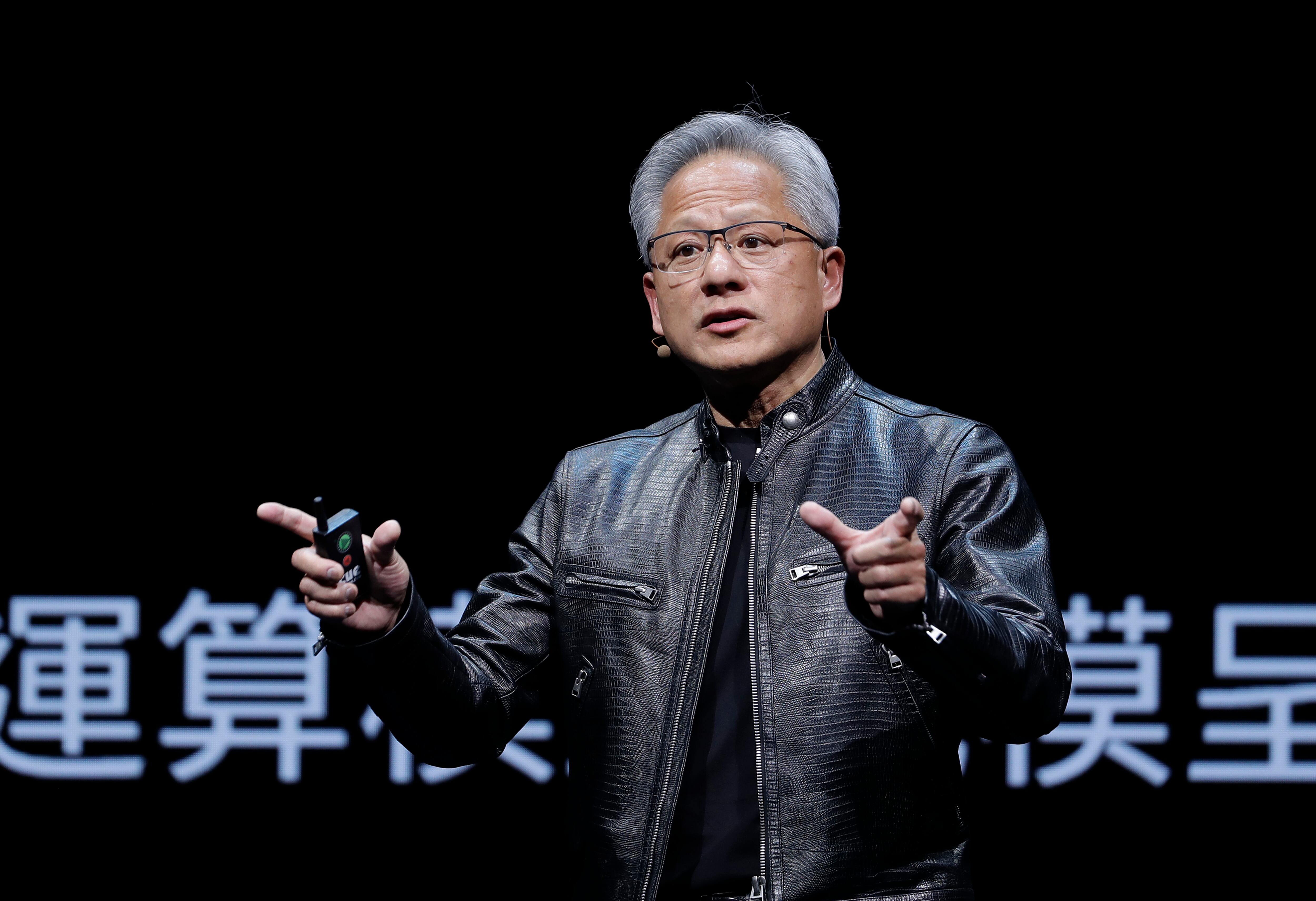Nvidia’s startling ascent in the stock market reached another milestone Tuesday as the chipmaker rose to become the most valuable company in the S&P 500. Investors now say the company is worth over $3.3 trillion.
Nvidia has seen soaring demand for its semiconductors, which are used to power artificial intelligence applications. Revenue more than tripled in the latest quarter from the same period a year earlier.
The company's journey to be one of the most prominent players in AI has produced some eye-popping numbers. Here’s a look:
$3.334 Trillion
Nvidia’s total market value as of the close Tuesday. It edged past Microsoft ($3.317 trillion). Apple is the third most-valuable company ($3.286 trillion). One year ago, the company had just crossed the $1 trillion threshold.
$113 billion
The one-day increase in Nvidia’s market value on Tuesday.
$135.58
Nvidia's closing stock price Tuesday. Two weeks ago the stock traded at more than $1,200, but the company completed a 10-for-1 stock split after trading closed on June 7. That gave each investor nine additional shares for every share they already owned. Companies with a high stock price often conduct stock splits to make the stock more affordable for investors.
$119.9 billion
Analysts' estimate for Nvidia's revenue for the fiscal year that ends in January 2025. That would be about double its revenue for fiscal 2024 and more than four times its receipts the year before that.
53.4%
Nvidia’s estimated net margin, or the percentage of revenue that gets turned into profit. Looked at another way, about 53 cents of every $1 in revenue Nvidia took in last year went to its bottom line. By comparison, Apple’s net margin was 26.3% in its most recent quarter and Microsoft’s was 36.4%. Both those companies have significantly higher revenue than Nvidia, however.
32%
How much of the S&P 500’s gain for the year through May came only from Nvidia.
11
The number of companies other than Nvidia that were once the most valuable in the S&P 500, going back to 1926, according to S&P Dow Jones Indices. Among them: AT&T, IBM and Walmart.













